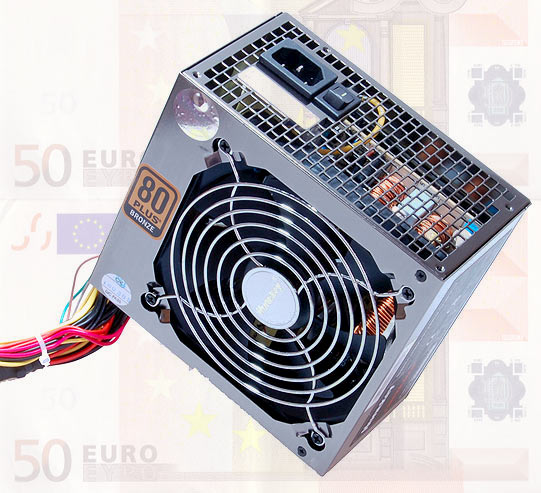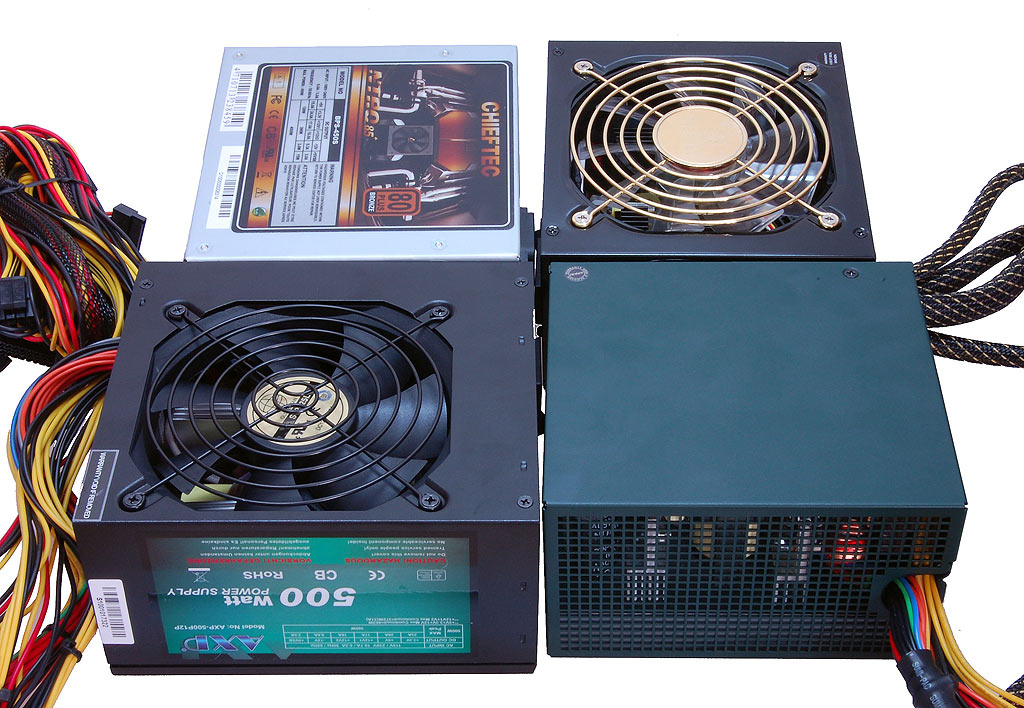Sub-$75 Mainstream Power Supply Roundup
PSUs At A Reasonable Price
In our last PSU article, we reviewed a bunch of relatively expensive high-performance devices suitable for powerful gaming computers and workstations. The average user typically prefers something a little bit more affordable, though, which is why today we're reviewing a handful of PSUs that can be found for around $75.
The potential reasons for buying a new PSU are many. Perhaps you've added a new graphics card, upgraded to a high-performance CPU, or are just replacing a faulty unit. A normal system usually doesn't require a high-end PSU. In most cases, the consumer is simply on the lookout for a cheap (and at the same time reliable) power supply at a reasonable price, so that's precisely what we decided to look at here.
The request we sent to manufacturers was simple: send us PSUs with a maximum street price of $75, regardless of wattage, features, or 80 PLUS certifications. What do you get in this price range?
Unexpected Early Goodbye
Our first test was originally made up of nine PSUs ranging from 400 to 500 W. We say "originally," because the AXP 500P12P died just as testing was getting started. With a load of 380 W, the 500 W PSU gave out a loud bang, sent sparks flying, and finally vanished in a smoky death. Since we were not expecting something like that at such an early phase in the testing, we'll give AXP the chance in a later article to prove that this was an isolated incident.
Then There Were Eight
Eight test candidates ultimately made it through the tests performed in our laboratory. Antec, Chieftec, Corsair, Enermax, FSP, Huntkey, Xigmatek, and a new AXP 500P12P were all included at capacity points between 380 to 500 W. That's enough power for most office and home entertainment computers. Despite a low street price of roughly $75, six of the PSUs even managed to achieve coveted 80 PLUS certifications. Antec, Chieftec, Corsair, Enermax, Xigmatek, and Huntkey all step things up with a Bronze-level cert. In order to earn that badge, PSUs must reach the following efficiency goals at 115 V: 82% at 20% of maximum power, 85% at 50% of maximum power, and 82% at 100% of the maximum power.
Get Tom's Hardware's best news and in-depth reviews, straight to your inbox.
The AXP PSU can only do that under 230 V and thus cannot get certification. Similarly, the FSP PSU is only intended for 230 V applications and thus cannot receive the certification either. The pair of PSUs is completely useless here in the US. Nevertheless, our measurements will show whether they can still impress the European crowd.
Noticeable Differences In Quality
While we wanted to stay impartial before the testing, we couldn't help but notice the differences in quality during the unboxing process. Manufacturers tried to keep costs under control by skimping on the number of connectors, as well including shorter, lower-quality cables. None of these models feature a modular cabling design. Even the packaging is rather stripped-down. Further, the low weight of some PSUs at least suggests the use of cheaper components. This may not reflect immediately in testing. However, the power supplies might not last for as many years or support the same load strain as PSUs with higher caliber components.
Unfortunately, we did not get to see whether the PSU from AXP could hold its own against the other supplies, despite its lack of 80 PLUS approval. As with our first sample from the company, the second never even made it past the warm-up phase of testing. At a load of around 420 W (mind you, this is a 500 W PSU), several of the voltages rapidly dropped, the PSU produced some banging noises, sparks flew, and eventually the unit went up in smoke. After that, it wouldn't operate anymore and smelled like, well, fire. This video documents the failure of the PSU quite impressively. Check it out if you dig things going "pop."
-
eddieroolz I still remember buying my Corsair VX550W for $91CAD just a year and half ago. Amazing how prices have come down for cheap, capable and yet quality PSUs over time.Reply
Oh, and it was interesting to see a real PSU blow up :D -
Patrick u sure the antec blows the hot air into the case?Reply
Looking at the picture and the fan alignment it seems otherwise. -
jestersage I wish the Xigmatek was available here. All we have are expensive 750w and 850w versions.Reply -
bmadd Im glad to see that the Antec 380D won. I have bought 5 for family and friends have been solid units to date.Reply -
youssef 2010 I don't think the Xigmatek PSU can keep the 650W load reliable or else Xigmatek would've rated it to be 650WReply -
feeddagoat Is there no way to measure how stable the power on each rail is? Some PSU's Ive seen are very efficient but their rails drops below recommended power delivery meaning components are starved. Some even fluxuate which can damage components over time. The only other thing I feel is missing is capacitor aging. Is there any way to simulate 2-3 years use? Most PSU's I use in my main machine get handed down to another rig or sold. 2nd hand PSU's could be false economy!Reply
great video, Ive always wanted to see a PSU explode lol.

